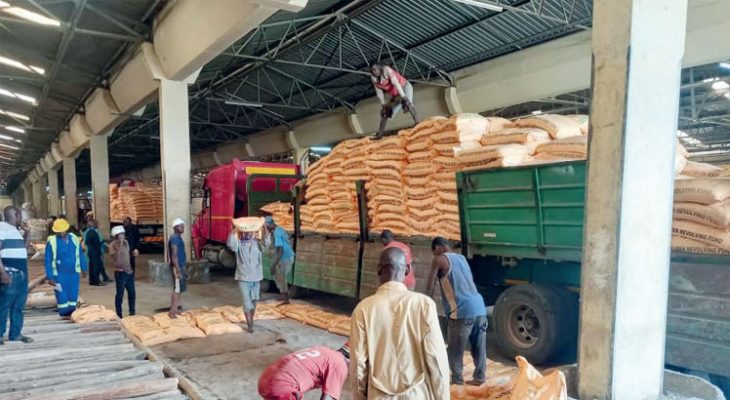
Fertiliser Plant Investment Set to Revitalise Malawi’s Agricultural Sector and Fuel Economic Growth
Key Business Points
- Investment Opportunity: The Moroccan Government’s plan to construct a fertiliser manufacturing plant in Malawi is set to revolutionize the country’s agriculture sector and provide a significant investment opportunity for local businesses.
- Import Substitution: The localized production of fertilisers is expected to reduce Malawi’s reliance on imports, stabilize prices, and improve the country’s trade balance, with the government currently spending around $300 million annually on fertiliser imports.
- Economic Growth: The development is aligned with the government’s priorities under the four Fs: food security, fertiliser, fuel, foreign exchange, plus medicines, and is expected to strengthen Malawi’s position as a regional agricultural hub, promoting uzamu (economic growth) and kulima (agricultural development).
The Moroccan Government’s plans to construct a fertiliser manufacturing plant in Malawi have been announced by Minister of Foreign Affairs and International Cooperation George Chaponda, following a bilateral meeting with his Moroccan counterpart Nasser Bourita in Rabat, Morocco. This mkakati (strategy) is part of a package of support aimed at benefiting the people of Malawi, and is expected to have a transformative impact on the country’s agriculture sector. The fertiliser plant will produce fertilisers for both local distribution and the regional market, reducing reliance on imports and stabilizing prices.
The approval of OCP Group fertilisers, produced by Morocco’s main fertiliser company, has paved the way for the Moroccan firm to localize its production in Malawi. The kalima (fertiliser) plant is expected to increase the country’s fertiliser production capacity, reducing the need for imports and promoting mawerro (self-sufficiency) in the agricultural sector. According to Ministry of Agriculture, Irrigation and Water Development data, Malawi requires around 500,000 metric tonnes of fertilisers annually, making this development a significant step towards meeting this demand.
The localized production of fertilisers is also expected to have a positive impact on the country’s trade balance, with the government currently spending around $300 million annually on fertiliser imports. Kutengera kwa zidalira (import substitution) is a key priority for the government, and this development is expected to make a significant contribution to this effort. The OCP Group, previously known as Office Chérifien des Phosphates, is Morocco’s largest State-owned phosphate miner and one of the major producers of fertilisers globally, making this a significant investment opportunity for Malawi.
Agricultural development policy expert Tamani Nkhono Mvula has described the development as positive, given the high logistical costs associated with importing fertilisers from East Asia or the Middle East. The localized production of fertilisers is expected to reduce these costs, making zinthu zophnwila (agricultural inputs) more accessible to farmers and promoting kulima (agricultural development) in the country. With the OCP Group announcing a major investment to increase its fertiliser production capacity by nine million metric tonnes by 2028, this development is set to have a significant impact on Malawi’s agriculture sector and economy, promoting uchumi (economic development) and maziko (growth) in the country.
What are your thoughts on this business development? Share your insights and remember to follow us on Facebook and Twitter for the latest Malawi business news and opportunities. Visit us daily for comprehensive coverage of Malawi’s business landscape.
